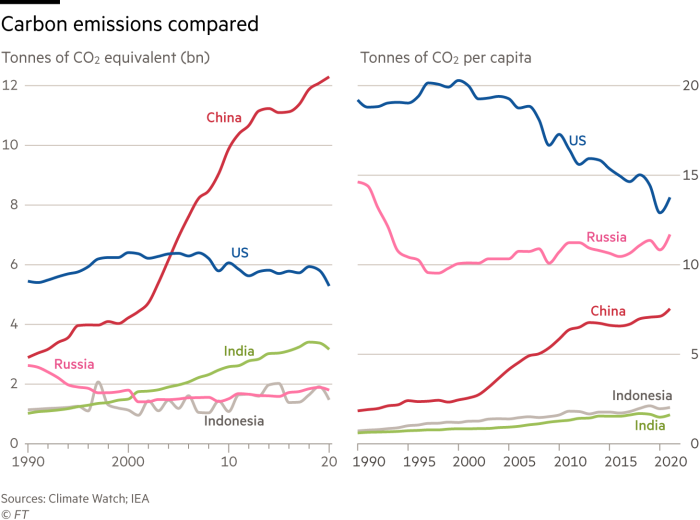Belgium’s De Croo calls for end to civilian casualties in Gaza

Roula Khalaf, Editor of the FT, selects her favourite stories in this weekly newsletter.
This article is an on-site version of our Europe Express newsletter. Sign up here to get the newsletter sent straight to your inbox every weekday and Saturday morning
Good morning. Brussels’ entire support package for Ukraine, from €50bn in budget financing to weapons supplies and progress on EU membership, is in jeopardy. Here’s why.
Today, Belgium’s prime minister tells Laura Israel must stop civilian deaths in Gaza, and our EIB watchers bring you the latest in a race to lead the bank that’s still not (officially) over.
Call for humanity
Belgian Prime Minister Alexander De Croo has doubled down on calls on Israel to stop killing civilians in Gaza and respect international law in its campaign against Hamas, writes Laura Dubois.
Context: A week-long ceasefire between Israel and Hamas expired on Friday, with Israel pledging to “eliminate” Hamas and resuming air strikes in retaliation for the militant group’s terror attack on October 7.
Speaking while the ceasefire was still in place, De Croo urged the Israeli government to “do everything to stop the killing of innocent civilians”.
“It can never be the goal to destroy a whole society, to destroy a whole territory. That can never be the solution,” De Croo said in an interview with the Financial Times, where he also said the EU should pare back a surge in state aid to improve the bloc’s competitiveness.
Much of the Gaza Strip has been reduced to rubble, and Palestinian health officials say more than 15,520 people have been killed by Israel’s military response.
De Croo said the civilian death count was “unseen”. “We do not want more innocent civilians being killed.”
Previous condemnations of the civilian deaths by De Croo during a visit to Israel with his Spanish counterpart Pedro Sánchez drew Israel’s ire and caused a diplomatic spat.
“I think it’s the right thing to say,” De Croo said, adding that it was necessary to “bring back some humanity in the discussion”.
De Croo said he had told Israeli Prime Minister Benjamin Netanyahu that it was possible for a country to defend itself while also granting humanitarian access and stopping civilian killings.
“Israel has the right to defend its population and has the right to take military actions, eliminate a terrorist threat that is originating from the territory of Gaza. But in doing so, it must respect international humanitarian law,” he said.
The Belgian politician said that Europe should have a voice in discussions around the Middle East war, as it would be affected by geopolitical instability and people fleeing the conflict.
“If you get refugee flows coming, we will be welcoming them. And we are already under tremendous pressure,” De Croo said. “If things go wrong, we bear the brunt.”
Chart du jour: Not nearly enough

The UN COP28 climate summit kicked off last week with initial pledges. Difficult negotiations lie ahead on climate finance and cuts to fossil fuel production. Search the FT’s special dashboard to find out how your country fares on emissions and pledges to reduce them in the future.
Elimination method
It’s crunch time in the race for the next president of the European Investment Bank, write Alice Hancock and Barney Jopson.
Context: Spain’s deputy prime minister Nadia Calviño and the EU’s former competition commissioner Margrethe Vestager have been neck and neck in the pursuit of the EIB’s top job. The successful candidate must have the backing of 18 countries representing at least 68 per cent of the share capital of the EIB.
Belgian finance minister Vincent Van Peteghem, who currently chairs the EIB’s board of governors, wrote to his 26 EU counterparts last week asking them to “formulate in writing” any objections to Calviño by today, according to two officials that have seen the note.
“This step suggests that, based on the consultations carried out by the chairman of the board of governors, Nadia Calviño is the only candidate who has the support needed to reach a consensus,” a Spanish government official said.
Whoever holds the presidency of the EIB will wield significant power over its investment decisions. The Luxembourg-based bank has a balance sheet of around €544bn, and is set to play a crucial role in financing the bloc’s energy transition and the reconstruction of Ukraine.
Vestager, a Danish politician, has been public about her intentions for the bank, telling the FT in September that the EIB should finance Ukraine’s reconstruction while the war continues, and be “more risk taking”.
Calviño, who also acts as Spain’s finance minister, has said little about what she would do at the EIB, only signalling her position on certain topics. She has, for example, said she was open to financing nuclear projects, something seen as key to winning French support.
Calviño already has the support of Berlin, and confirming backing from Paris would likely seal her position as the favourite.
Van Peteghem’s letter could help clarify countries’ positions by elimination, before EU finance ministers are expected to take a decision on Friday.
What to watch today
EU justice ministers meet.
German Chancellor Olaf Scholz hosts Brazilian President Luiz Inácio Lula da Silva in Berlin.
Now read these
Preventing escalation: EU leaders must take a tough line on China’s military provocations against Taiwan, writes Anders Fogh Rasmussen.
Mercosur deal goes south: EU trade chief Valdis Dombrovskis has cancelled a trip to Brazil amid uncertainty over the bloc’s trade deal with Mercosur.
Radicalised: A knife attack in Paris that killed one person and injured two others is being treated as a terrorist incident by French authorities.
Are you enjoying Europe Express? Sign up here to have it delivered straight to your inbox every workday at 7am CET and on Saturdays at noon CET. Do tell us what you think, we love to hear from you: europe.express@ft.com. Keep up with the latest European stories @FT Europe
Comments